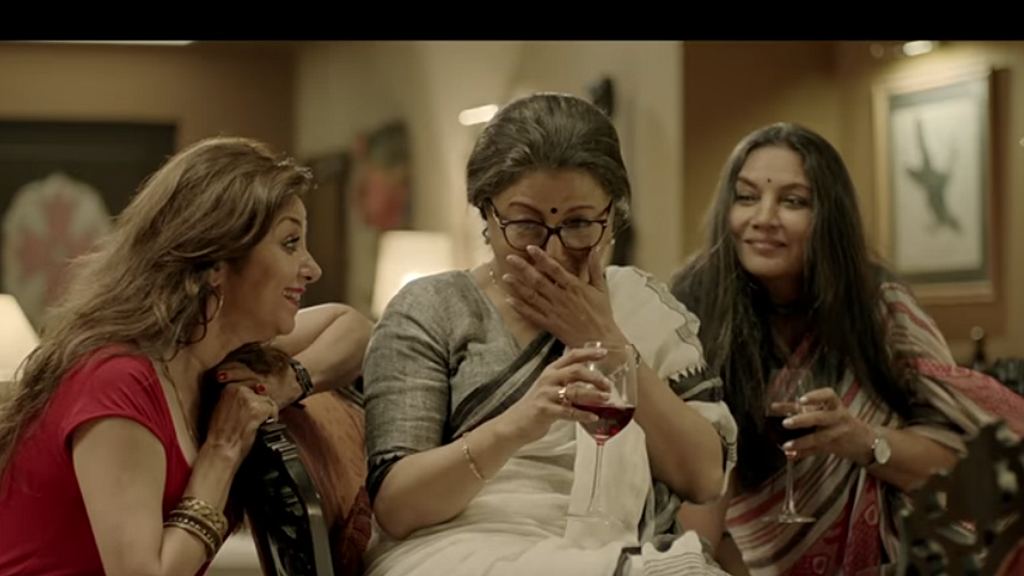When feminism makes a sudden splash in Indian films
In a rare phenomenon, four women-centric films – <i>Begum Jaan</i>, <i>Matr, Noor</i> and <i>Sonata</i> – have been released since last Friday. They break<i> </i>clichés and stereotypes

In a male-centric Indian film industry, there’s been a rare phenomenon witnessed since last week. Four women-centric films have been released since last Friday – while Begum Jaan released last Friday, Matr, Noor and Sonata released this week.
Breaking clichés, all the four films treat distinct aspects related to women, in refreshing styles.
Matr and Begum Jaan deal with basically the physicality of women; the way society looks at them and commodifies them; where a serious crime like rape gets entangled in the whirlpool of judiciary, law and order agency and politics. On the other hand, Noor and Sonata deal with the way women look at this world and society, their perspective, frustration successes and failures in fulfilling what is expected of them.
While the reviewers may pan or praise the movies, let’s take a look at what these four films are all about.
Both Matr and Begum Jaan are jarring, loud and violent, to the point of being gory. Matr – directed by Ashtar Sayed with Raveena Tandon starring – is our typical masala film about a woman and his daughter being brutally raped, the woman sees her husband distancing himself, system embroiled in its own red tape and corruption, and she finally takes up arms against her perpetrators and avenges herself.
Begum Jaan is about a brothel stuck on the Radcliffe Line during Partition and women being vulnerable at the time of crisis. They suffer from being raped, humiliated and tortured, but stand up firmly to survive. Directed by Srijit Mukherjee, the movie stars Vidya Balan. It carries some loud dialogues such as “Azadi keval mardon ke liye hoti hai (Freedom is exclusive to males)”.
Whereas, Noor and Sonata are more subtle, brimming with undercurrents but careful enough not to be flooding.
While the portrayal by Sonakshi of the protagonist Noor Roy Choudhary, as a young girl, comes across as a very real and endearing character – confused and frustrated in love, overeating though conscious of her weight and professionally struggling to do a task she does not want to do. However, the depiction of the character as a journalist, comes across as a little unrealistic and unclear. The film – directed by Sunhil Sippy – is based on Karachi, You're Killing Me! a chick lit novel by Pakistani author Saba Imtiaz and the character reminds of Bridget Jones.
It doesn’t matter how these films perform at the box office or how they are reviewed, the fact is that Indian cinema is gradually coming of age where women are coming out of stereotype roles such as that of a mother, daughter, sister, wife or a hooker
We do not have such films which has a young woman at its centre, where she is not a tragic figure or a victim but just trying to find the ground under her feet. Noor looks like any other young girl on the path of exploring love, friends, work and life in general.
Sonata on the other hand deals with older single women, sharing an evening together. Based on a play by Mahesh Elkunchwar, and directed by Aparna Sen this English film is about three older women who have not settled down in a married life but none-the-less are not unsettled. The film is less about the story but more about the characters in it. Dolon and Aruna, the two female characters who share an apartment, are played by Shabana Azmi and Aparna Sen respectively.
The two have completely different personalities and there’s a very subtle tinge of romantic attraction that can be felt between the two, but is never said. The third one, Subhadra, is a journalist who is a victim of domestic violence and has a complicated personal life. There is no message in the story, just that these women, who are well-read and intelligent, have just chosen to stay outside the stereotypical world. That this is also an option of life, and can be fun-filled, is something which has seldom been portrayed in our cinema.
That said, it doesn’t matter how these films perform at the box office or how they are reviewed, the fact is that Indian cinema is gradually coming of age where women are coming out of stereotype roles such as that of a mother, daughter, sister, wife or a hooker. That commercial cinema is becoming more confident of making films completely centered on women characters is a positive take. However, given the present times, the Censor Board may just snip a tad more and spoil it all.
Follow us on: Facebook, Twitter, Google News, Instagram
Join our official telegram channel (@nationalherald) and stay updated with the latest headlines
- Shabana Azmi
- Vidya Balan
- Raveena Tandon
- Begum Jaan
- Matr
- Sonata
- Noor
- Ashtar Sayed
- Srijit Mukherjee
- Sonakshi
- Sunhil Sippy
- clichés
- stereotypes
- women-centric films
- Noor Roy Choudhary
- Saba Imtiaz
- Bridget Jones
- single women
- Aparna Sen
